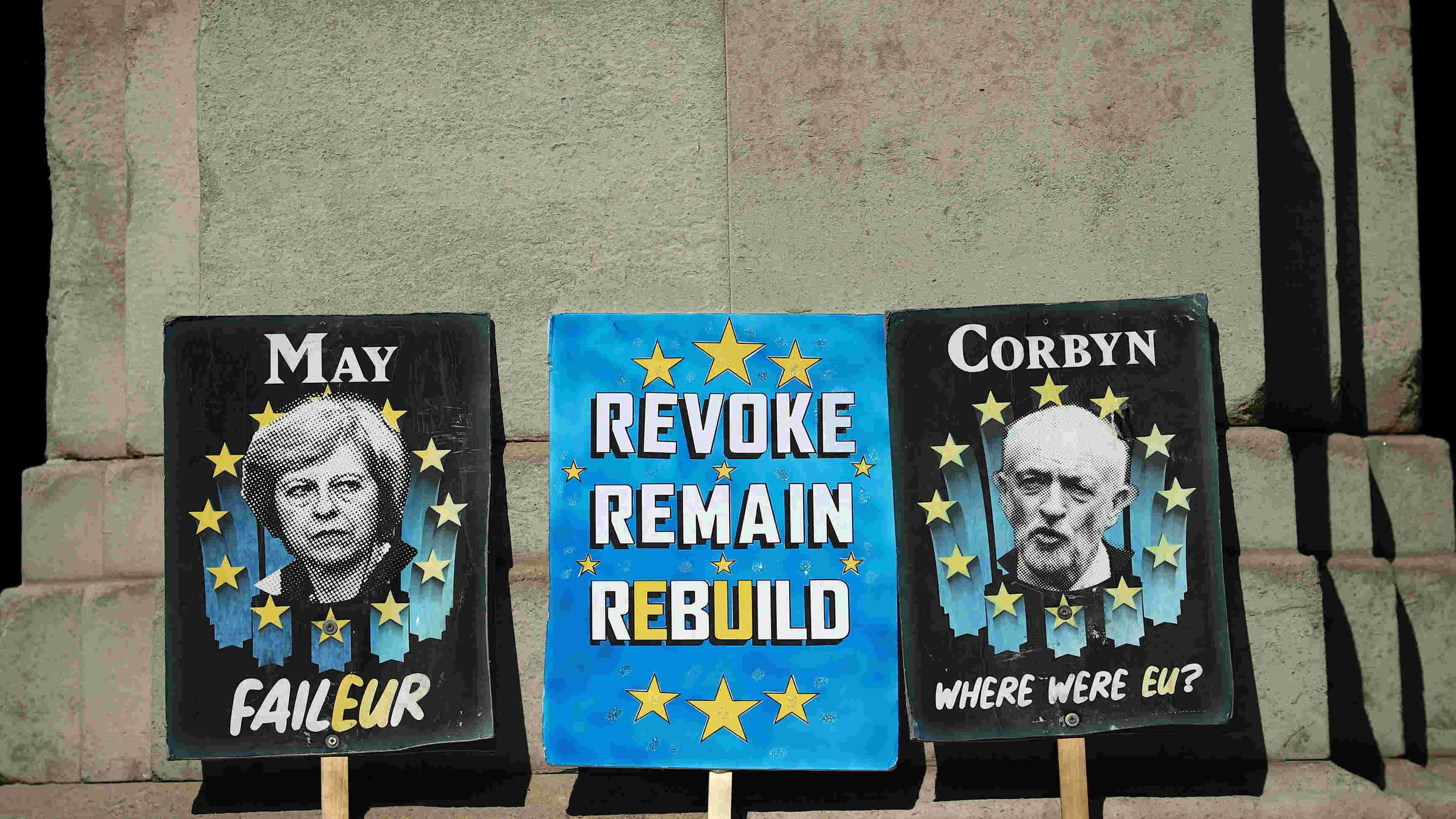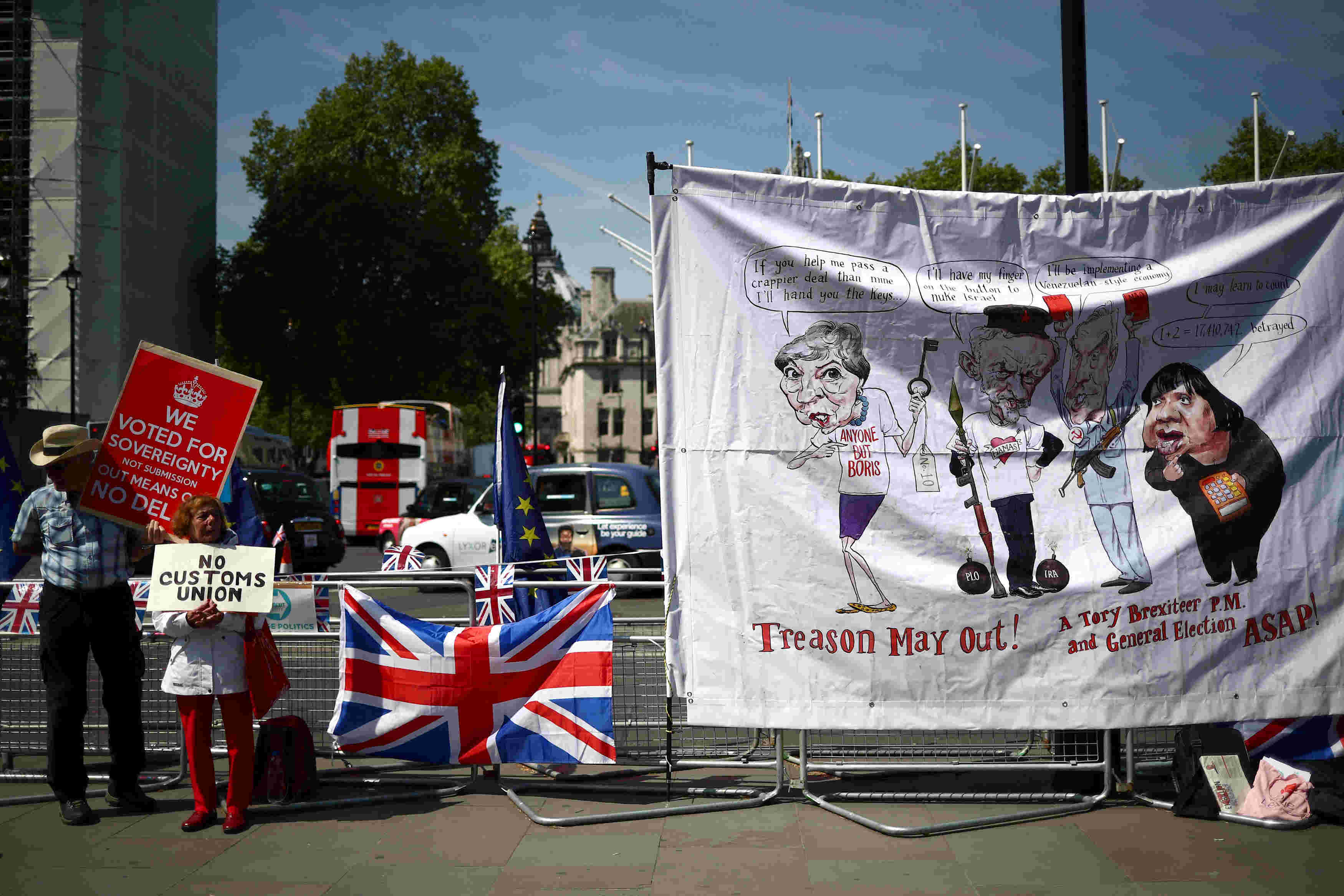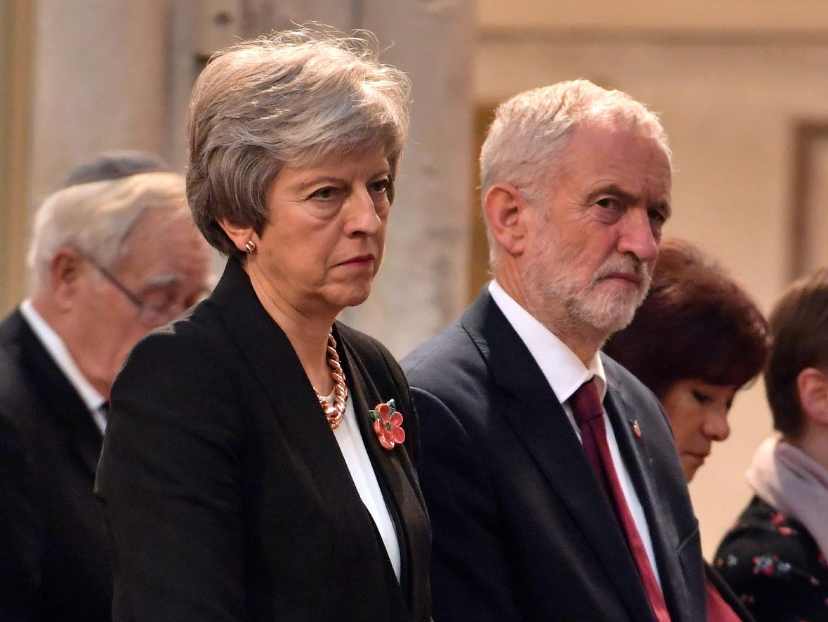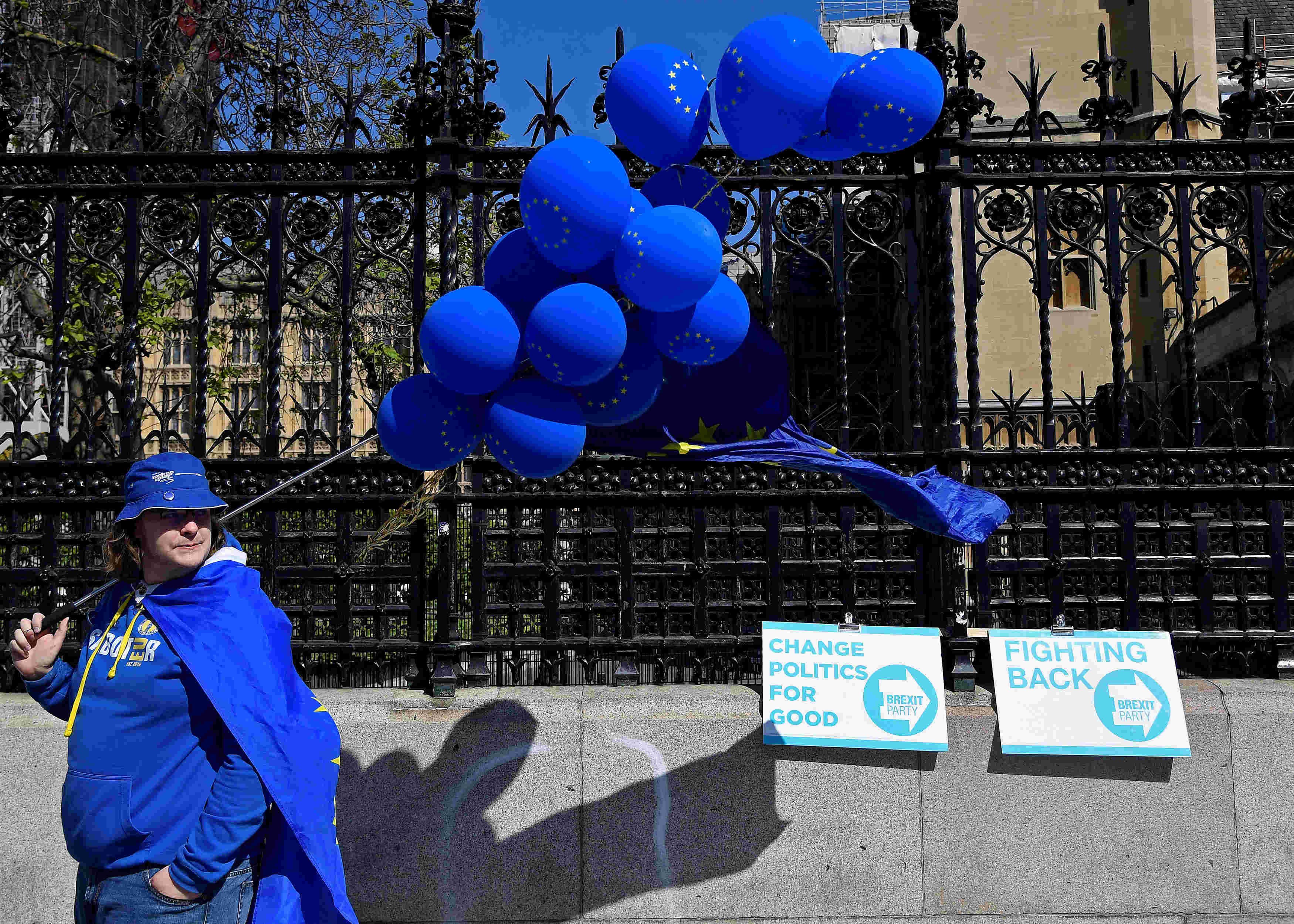
Europe
14:48, 17-May-2019
Brexit talks between Tories and Labour collapse as May's premiership crumbles
Updated
20:54, 17-May-2019
CGTN

Britain's tumultuous divorce from the European Union was again in disarray on Friday after the opposition Labour Party declared last-ditch talks dead due to Prime Minister Theresa May's crumbling government.
Nearly three years after the United Kingdom voted 52 to 48 percent in a referendum to leave the EU, it remains unclear how, when, or even if it will leave the European club it joined in 1973. The current deadline to leave is October 31.
Brexit talks between May's Conservative Party and Labour collapsed hours after May agreed on Thursday to set out in early June a timetable for her departure.

Pro-Brexit protesters demonstrate outside the Houses of Parliament in London, Britain, May 15, 2019. /Reuters Photo
Pro-Brexit protesters demonstrate outside the Houses of Parliament in London, Britain, May 15, 2019. /Reuters Photo
Instability of her government
Labour leader Jeremy Corbyn wrote to May on Friday informing her that the Brexit talks, which began on April 3, had “gone as far as they can” due to the instability of her government.
“We have been unable to bridge important policy gaps between us,” Corbyn, a socialist who voted against joining the predecessor of the EU in 1975, wrote to May.
“Even more crucially, the increasing weakness and instability of your government means there cannot be confidence in securing whatever might be agreed between us,” Corbyn said.
He said Labour would oppose May's deal when it returns to parliament early next month. He later told reporters there was no chance of getting even part of a Brexit deal ratified by the end of July.

Britain's Prime Minister Theresa May, and the leader of opposition Labour Party, Jeremy Corbyn attend an Armistice remembrance service at St Margaret's Church, in London, Britain, November 6, 2018. /Reuters Photo
Britain's Prime Minister Theresa May, and the leader of opposition Labour Party, Jeremy Corbyn attend an Armistice remembrance service at St Margaret's Church, in London, Britain, November 6, 2018. /Reuters Photo
The divorce deal, which May agreed last year with the EU, has been rejected three times by parliament. May will put part of her deal, contained in the Withdrawal Agreement Bill, to a vote in parliament in early June.
A source in May's office said the bill will contain new features to reflect some lawmakers' concerns.
May's hands have been tied, knowing that to make concessions to Labour would lead to fury in her divided party. Labour has feared any compromises on issues such as workers' rights would be torn up by May's successor.
May ends in June
May agreed on Thursday to set out a timetable for her departure in early June after the latest attempt to get her thrice-defeated Brexit deal approved by parliament.
After she puts her deal to a vote in the week of June 3, when U.S. President Donald Trump is due to make a state visit to Britain, May has said she will agree a timetable for the election of her successor.
Boris Johnson, the face of the campaign for Britain to leave the EU, said he would be standing as a candidate to replace May as Conservative leader.
“As we look to the future, we have to listen to the public,” Simon Clarke, a Conservative lawmaker, said on Twitter. “Boris Johnson is the only candidate who increases likelihood to vote Conservative among both our 2017 voters & people planning to vote (for the newly formed) Brexit Party.”
The winner of a leadership contest will automatically become prime minister and will take control of the Brexit process, which has plunged Britain into its worst political crisis since World War II.

An anti-Brexit protester stands next to Brexit Party campaign placards outside of the Houses of Parliament in London, Britain, May 16, 2019. /Reuters Photo
An anti-Brexit protester stands next to Brexit Party campaign placards outside of the Houses of Parliament in London, Britain, May 16, 2019. /Reuters Photo
Another referendum
Labour's MP, the chairman of parliament's Brexit committee Hilary Benn told the BBC on Friday morning that another referendum on EU membership is more likely if talks between the two main parties collapse.
"If the talks are not going anywhere, from my point of view that leads to only one conclusion," the influential MP said.
"There are only two ways out of the Brexit crisis that we've got: either parliament agrees a deal or we go back to the British people and ask them to make the choice." "And I think this brings the prospect of a confirmatory referendum closer although there's not yet a majority for that in parliament," he said.
(Cover: Anti-Brexit placards are seen outside the Houses of Parliament in London, Britain, May 13, 2019. /Reuters Photo)
(With inputs from Reuters)

SITEMAP
Copyright © 2018 CGTN. Beijing ICP prepared NO.16065310-3
Copyright © 2018 CGTN. Beijing ICP prepared NO.16065310-3